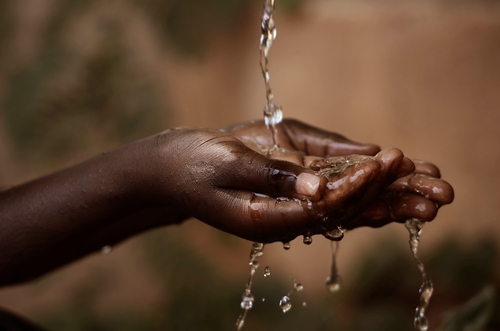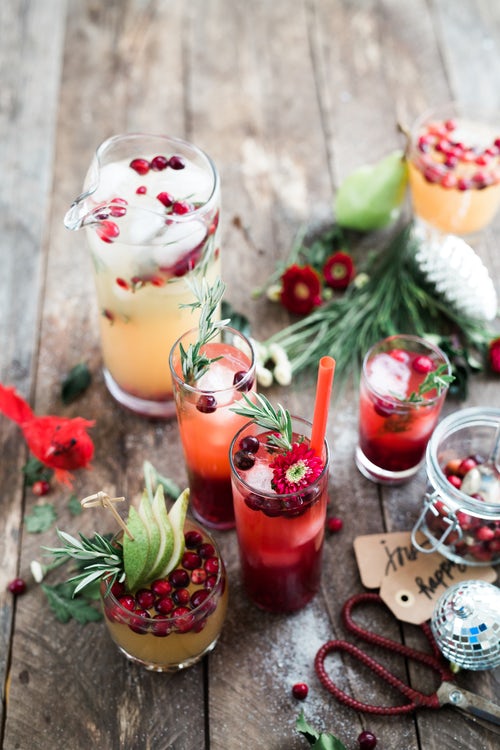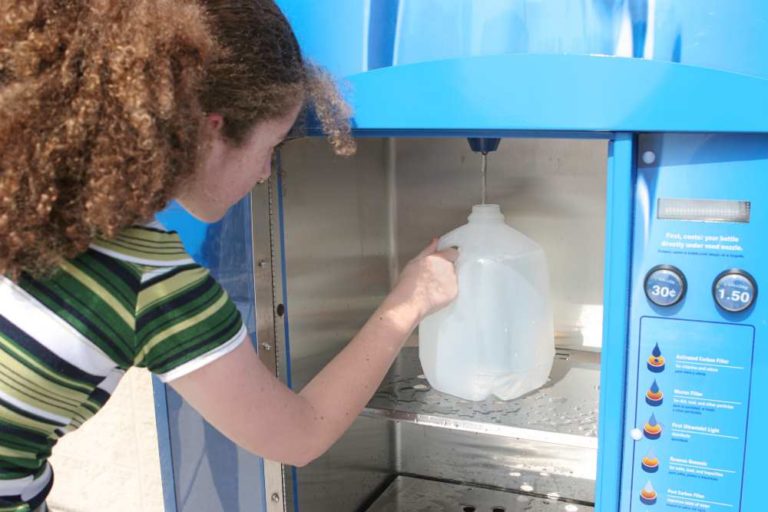
Water for society – Including all
World Water Week, the leading annual event on global water issues, was held in Stockholm from August 25-30, 2019. https://www.worldwaterweek.org World

Share with Friends

It’s that time of year again and no doubt you’ve been invited to a holiday party or two. From holiday parties to New Year’s Eve, we’re much more likely to overindulge and drink alcohol at this time of the year. Of course, the holiday spirit can get the best of us sometimes, leading to a dreaded hangover. You know the feeling: headache, fatigue, gastrointestinal problems, dry mouth and aches. Generally, the more alcohol a person drinks, the more likely they are to experience a hangover the following day. However, some people are able to drink heavily without suffering any hangover symptoms, while others develop symptoms after having consumed only a small amount of alcoholic drink.
Hangovers usually pass after 24 hours, although they can last longer. If you are planning to drink alcohol, doing so responsibly can decrease the risk of a hangover.
While the best way to treat a hangover is to avoid drinking too much in the first place, there are some things you can do to mitigate the damage.
Did you know that alcohol suppresses the secretion of an anti-diuretic hormone called vasopressin that is responsible for telling the kidneys to conserve and recycle body water? Since the hormone is suppressed, our bodies don’t get the signal, and this vital water is lost. That’s why you tend to visit the bathroom more often when you drink and why you feel so dreadful the next day. Too much alcohol in the system can also affect the body in other ways such as:
Immune system response: Alcohol may trigger an inflammatory response from the immune system. This can affect appetite, concentration, and memory.
Stomach irritation: Alcohol consumption raises the production of stomach acids; it also slows down the rate at which the stomach empties itself – this combination can lead to nausea,vomiting, or stomachache.
Drop in bloodsugar: Some people’s blood sugar levels can fall steeply when they consume alcohol, resulting in shakiness, moodiness, tiredness, general weakness, and even seizures in somecases.
Dilation of blood vessels: Alcohol consumption can cause the blood vessels to dilate, which can cause headaches.
Sleep quality: Although sleeping when drunk is common, the quality of that sleep will often be poor. The individual may wake up tired and still sleepy.
Congeners: These are substances that are produced during fermentation and are responsible for most of the taste and aroma in distilled drinks (whisky or gin,for example). They are known to contribute to symptoms of a hangover. Examples of congeners include esters and aldehydes.
Toxic by products: Alcohol metabolism produces toxic substances that can cause many of the symptoms of hangovers.
Drink and drive
So you went a bit overboard at the holiday office party and lost track of the number of drinks you had. Luckily you had the smarts beforehand to take a cab to the party so you didn’t risk driving inebriated. Although drinking and driving was always a bad idea, changes to impaired driving laws that came into force in December will provide an even greater deterrent and will reduce the number of people who die in crashes caused by drunk drivers, predicts the head of Mothers Against Drunk Driving Canada.
Under changes to the Criminal Code police will be able to carry out what is called mandatory alcohol screening, which means officers can demand a breath sample at the roadside fromany driver who has been lawfully stopped. Previously, officers had to have “reasonable suspicion” that a driver had alcohol in his or her body to demand a breath sample.
Countries that have introduced mandatory screening have seen a drop in roadside deaths caused by impaired driving. In Ireland, forexample, mandatory screening has been given credit for lowering the number of roadside deaths by about 40 per cent in the first four years after it becamelaw.
Drink more
Do not go for a “hair of the dog” – an alcoholic drink to get rid of a hangover. This is a myth,and will likely just prolong hangover symptoms.
Although in most cases drinking too much has short-term negative impact,sometimes too much alcohol can be more serious. If the individual has the following more severe signs and symptoms when or after drinking, they may have alcoholpoisoning. This is a medical emergency. Seek medical help as soon as possible if any of the following occur:
The symptoms vary in severity, and some people may experience some more strongly than others.
Studies have shown that drinking additional water helped diminish alcohol’s dehydrating effect. In a recent test, participants drank a liter and a half of water after drinking the alcohol. The result? Alcohol’s dehydrating factor was cut in half. Therefore, it’s clear that drinking water whenever possible can help you to avoid dehydration after a night of binging.
And it’s also important to choose what kind of water you’re drinking. Clean, filtered water is a good choice but H2 water is even more hydrating than ordinary filtered water. Each molecule of H2 “neutralizes” 2 hydroxyl radicals into simple H20, which then becomes a source of hydration to your body’s cells turning a negative situation in the body into a positive one. Hydrogen water with a concentration of 1.6 mg/L contains more antioxidant potential than 100 mg of vitamin C.
That means you’ll be able to drink less water and still rehydrate your body with fewer trips to the bathroom. Chances are you’ll have a better sleep and feel a lot better the next day. But don’t forget to keep hydrating your body with H2 water in the morning to help flush out your kidneys.
So this holiday season raise a glass (or two) and then make sure to follow with plenty of clean, filtered H2 water as a chaser.
To ensure you’re drinking H2 water on the go, check out the new Hydrogen Water Bottle: https://www.waterionizer.org/product/h2-water-technology/hydrogen-water-bottle-aok-808
Share with Friends

Julia Abelsohn is a writer, editor and clinical aromatherapist. She has been sharing her expertise and passion for health and wellness for over 25 years. When not at her desk she can be found exploring the many trails and green spaces near her home in Edmonton, Alberta.
Featured
Drink healthy, hydrogen-enriched water on the go with the AOK 808
The only USA-made water ionizer filter that has certified independent test results for reducing 172 contaminants by 99.9%.
World’s most advanced natural filter, alkalizer, ionizer and hydrogen system all in one affordable package.
Follow Us
Latest Posts

World Water Week, the leading annual event on global water issues, was held in Stockholm from August 25-30, 2019. https://www.worldwaterweek.org World

It’s Saturday morning, the sun is shining and it’s a perfect day to go out for a paddle. You grab

Since time immemorial scientists, philosophers and even us mere mortals have asked the question: are we alone in the universe?
Popular Posts

Water vending machines are as common in grocery stores as ATM machines but what kind of water are they really
For over 20 years, thousands of customers worldwide rely on Best Water for our excellent one-to-one support, high quality water ionizer products and competitive pricing. If you have any questions at all please call us. Our experienced techs are ready to help! Learn more about us.
© 2019 Best Water Inc. All Rights Reserved. Website & Branding by Elite Web Design
Temukan berbagai sumber informasi dan inspirasi menarik di dunia digital. Kunjungi Kathy and Dave untuk cerita yang menghibur, atau dapatkan berita terkini di Iwoland Hub. Jika Anda membutuhkan solusi perbaikan rumah, NRG Upgrade adalah pilihan tepat. Eksplorasi produk berkualitas dari Global Denim Textile Ltd., atau ikuti program pendidikan unggulan di Baitul Hikmah. Untuk manajemen tenaga kerja yang efisien, coba StaffAny. Bergabunglah dengan Mechal Sport Club untuk komunitas olahraga, dan jika Anda penggemar judi, Jos257 menawarkan peluang kemenangan tinggi. Untuk kebutuhan logistik, EES Shipping siap membantu. Madrasatul Qur`an ( link) dan MQ Wonosobo IDN fokus pada pendidikan dan berita, sementara Nuri Islam Al Mujaddid menyediakan informasi Islam yang bermanfaat. Jangan lewatkan informasi seputar haji dan umrah di Annur Hajj Jember.
Slot gacor merupakan istilah yang sering digunakan oleh para pemain judi online untuk merujuk pada permainan slot yang memberikan peluang kemenangan tinggi. Banyak pemain mencari slot gacor karena mereka menjanjikan tingkat Return to Player (RTP) yang lebih baik, artinya peluang untuk menang lebih besar. Dengan fitur bonus menarik dan jackpot yang menggiurkan, permainan ini semakin diminati. Selain itu, banyak situs menyediakan informasi terkini tentang slot gacor yang dapat membantu pemain memilih mesin slot terbaik untuk dimainkan. Jika Anda ingin merasakan sensasi menang yang lebih sering, mencari slot gacor adalah langkah yang tepat!
Spaceman Slot adalah permainan slot yang menawarkan pengalaman bermain yang unik dan menarik dengan tema luar angkasa. Dalam game ini, pemain mengikuti petualangan seorang astronot yang menjelajahi galaksi sambil mencari harta karun dan bonus menarik. Dengan grafis yang memukau dan efek suara yang imersif, Spaceman Slot menyajikan fitur-fitur inovatif seperti simbol liar, putaran gratis, dan pengganda, yang meningkatkan peluang pemain untuk meraih kemenangan besar. Permainan ini tidak hanya menyenangkan, tetapi juga menghadirkan tantangan strategis, menjadikannya favorit di kalangan pecinta slot online.
Togel Sydney, atau Sydney Lottery, adalah salah satu bentuk perjudian yang populer di Australia. Permainan ini dimulai pada awal tahun 1990-an dan menjadi terkenal karena memberikan peluang bagi pemain untuk memenangkan hadiah besar dengan memilih angka.
Sejarah Perkembangan:
Togel Sydney tetap menjadi salah satu pilihan utama bagi para penjudi di Australia, dan terus beradaptasi dengan perkembangan teknologi dan preferensi masyarakat.
Bursa777 adalah platform terbaik bagi para penggemar judi online yang mencari pengalaman bermain yang menyenangkan dan aman. Dengan berbagai pilihan permainan seperti slot, togel, dan taruhan olahraga, Bursa 77 menjamin kesenangan dan peluang besar untuk meraih kemenangan. Nikmati sistem yang transparan dan layanan pelanggan yang responsif, serta berbagai bonus menarik yang siap menanti. Bergabunglah dengan komunitas kami di Bursa 777 dan raih kesempatan untuk menang besar hari ini!
Senang4D adalah destinasi utama bagi para penggemar permainan toto yang ingin merasakan kegembiraan dan peluang menang yang tinggi. Dengan berbagai jenis permainan seperti Senang 4D Toto dan fitur Senang 4D Gacor, platform ini menawarkan pengalaman bermain yang seru dan menguntungkan. Nikmati sistem yang mudah dipahami dan layanan yang ramah, serta berbagai bonus menarik yang siap membuat setiap taruhan lebih mengasyikkan. Bergabunglah dengan Senang 4D sekarang juga dan raih kesempatan untuk meraih jackpot besar!
Selamat datang di JavaRote, di mana kami menawarkan pengalaman menginap yang autentik dan nyaman. Nikmati berbagai pilihan kamar dengan fasilitas lengkap.
Hubungi kami untuk pertanyaan tentang reservasi atau fasilitas. Kami siap membantu Anda membuat pengalaman menginap menjadi tak terlupakan.
Pilih dari berbagai jenis kamar yang kami tawarkan, termasuk Deluxe dan Standard dengan berbagai fasilitas.
Lihat galeri foto kami untuk mendapatkan gambaran tentang fasilitas dan suasana homestay kami.
Temukan informasi terbaru dan menarik tentang Permen4D, termasuk tips dan trik untuk memenangkan permainan.
Temukan berbagai pilihan tidur berkualitas tinggi, mulai dari kasur, bantal, hingga selimut. Dapatkan kenyamanan maksimal untuk tidur yang lebih baik.
Senang4D adalah alat inovatif untuk menemukan peluang menghasilkan uang secara online. Maksimalkan potensi Anda dengan fitur canggih kami.
Ikuti artikel terbaru dan tips tentang cara meningkatkan kualitas tidur dan memilih produk yang tepat untuk kenyamanan maksimal.
Hubungi kami untuk pertanyaan lebih lanjut tentang produk atau layanan. Kami siap membantu Anda!
Discover how our tailored event management services can elevate your gatherings. Mentoz4d for innovative solutions!
PPTQ Nur Islami Almujaddid berkomitmen mencetak generasi emas yang mandiri dan berakhlak karima.
Santri kami telah meraih berbagai prestasi membanggakan di tingkat provinsi dan nasional.
Ikuti berita terbaru tentang kegiatan dan prestasi di PPTQ Nur Islami Almujaddid.
Daftar sekarang untuk menjadi bagian dari komunitas kami di tahun ajaran baru.
Bantu kami dalam mencetak generasi emas melalui program donasi.
Temukan berbagai produk solar kami yang efisien dan ramah lingkungan. slot88 untuk informasi lebih lanjut!
Kami menyediakan berbagai perlengkapan kamar mandi berkualitas tinggi. slot88 untuk detail produk!
Buku 4D adalah sumber informasi penting bagi para pemain togel. Dengan strategi dan analisis yang mendalam, buku ini membantu Anda memahami pola dan peluang dalam permainan.
Joker123 menawarkan berbagai pilihan game menarik yang siap menghibur. Dengan grafis yang memukau dan gameplay yang seru, Anda tidak akan merasa bosan. Cobalah game terbaru dan rasakan keseruannya!
Permen4D adalah permainan yang menggabungkan kesenangan dan peluang. Dengan cara bermain yang unik, Anda dapat meraih kemenangan sambil menikmati pengalaman bermain yang menyenangkan.
Explore valuable resources and services provided by W3helper:
Explore valuable resources related to SBOBET and online sports betting:
Slot88 dan Slot777 adalah dua platform permainan slot online yang sangat populer di kalangan pencinta judi. Keduanya menawarkan berbagai jenis permainan slot gacor, yang dikenal mudah memberikan jackpot (JP) kepada pemain. Slot gacor hari ini semakin menarik perhatian karena banyaknya pemain yang berhasil meraih kemenangan besar. Slot super gacor, sebagai salah satu kategori unggulan, menjanjikan pengalaman bermain yang lebih menguntungkan. Untuk memulai, pemain dapat melakukan login di Slot88 dan menikmati berbagai fitur yang menarik. Dengan banyaknya pilihan dan peluang menang yang tinggi, permainan slot ini menjadi pilihan utama bagi mereka yang mencari kesenangan dan keuntungan dalam bermain.
Sbobet88 dan Sbobet adalah platform taruhan online yang terkenal, memberikan berbagai pilihan untuk penggemar judi. Sbobet Asia juga menjadi pilihan utama bagi para pemain di kawasan Asia, menawarkan taruhan olahraga, kasino, dan permainan lainnya. Sebagai agen resmi, Sbobet agen memberikan layanan terbaik untuk memastikan pengalaman bermain yang aman dan menyenangkan. Sementara itu, Senang4d menawarkan alternatif menarik bagi pemain yang mencari variasi dalam permainan judi online. Dengan berbagai opsi yang tersedia, para pemain dapat menemukan platform yang sesuai dengan preferensi dan kebutuhan mereka.
Jika Anda mencari informasi lebih lanjut mengenai layanan kesehatan di Douala, Anda dapat mengunjungi Hotel Dieu de Douala. Dengan layanan 24 jam dan spesialisasi dalam berbagai bidang seperti pediatri dan urgensi, mereka siap membantu Anda kapan saja. Selain itu, dalam dunia hiburan, banyak yang berbicara tentang slot gacor, slot88, dan slot777 sebagai pilihan permainan menarik. Jangan lewatkan juga keseruan slot super yang menawarkan pengalaman bermain yang tak terlupakan. Kunjungi situs mereka untuk mendapatkan detail lebih lanjut!